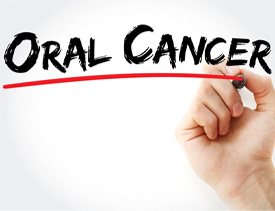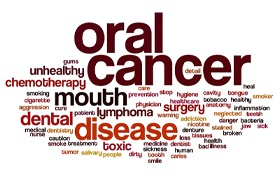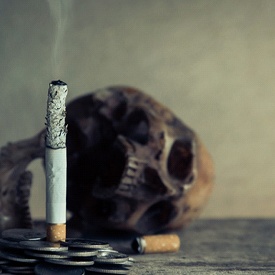Oral Cancer Screenings – Arnold, MO
A Quick Exam Could Save Your Life

Did you know that this year alone, almost 50,000 people will be diagnosed with oral cancer? Unfortunately, many of them won’t live five years past their original diagnosis, mainly because the disease was not caught early enough to be treated. Oral cancer is actually highly treatable when detected early, which is why Dr. Jonathan Mears or Dr. Laura Mears will examine your mouth for oral cancer at every dental checkup and cleaning. The exam takes less than two minutes out of your appointment, but it could end up saving your life.
What You Should Know About Oral Cancer

Oral cancer refers to any cancer that affects the tissues in the mouth, neck, and head (excluding the brain). Numerous factors can contribute to the development of oral cancer, but the most common tend to be:
- Smoking or chewing tobacco
- Poor oral hygiene
- Excessive and frequent alcohol consumption
- Wearing ill-fitting dentures
- Human papillomavirus (HPV)
- A genetic predisposition to oral cancer
While oral cancer can be prevented in many cases, rates are actually on the rise in young, healthy people due to the increase in HPV in recent years. Believe it or not, almost 25 percent of all new cases of oral cancer are NOT linked to tobacco or alcohol use.
Symptoms of Oral Cancer

Let one of our dentists know if you experience any of the following symptoms of oral cancer:
- Sores in the mouth that bleed often or just won’t heal
- Areas of tissue in the mouth that are unusually red or white
- A thickening or swelling of oral tissue
- Rough or scaly patches of tissue in the mouth
- A growth or lump in the neck or mouth
- Persistent sore throat or hoarse voice
- Constant feeling that something is caught in the throat
- Sudden and dramatic weight loss
- A sudden change in the way the teeth fit together
- Pain or numbness in or around the face
- Problems speaking or eating normally
What You Can Expect at an Oral Cancer Screening

Although the signs listed above can be hard to miss, oftentimes symptoms of oral cancer don’t display themselves until it’s too late. That’s why getting an oral cancer screening at least once a year is crucial. Our dentists have the training and knowledge necessary to recognize the early signs of the disease while treatment would still be manageable.
During this screening, our dentists will use a specially designed fluorescent light that will make cancerous and even pre-cancerous tissue visible. If we spot any problems areas, we can arrange for a biopsy to be taken to see if it’s actually oral cancer. From there, we can ensure that you get the care you need.
When oral cancer is caught early enough, you have about an 85 percent chance of survival. That rate, however, quickly drops to about 20 percent in the alter stages of the disease. That’s why regular screenings are so crucial. Contact us today to schedule your checkup today to make sure that you’re oral cancer-free.
